Apple says FBI case is the start of a slippery slope to mass surveillance via iPhone
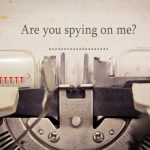
The battle between the FBI and Apple over access to the San Bernardino shooter's iPhone is turning into little more than a battle of wills. Both sides are using the case to make a point; Apple posits that unlocking the phone would set a dangerous precedent, the FBI says not unlocking the phone amounts to aiding terrorists.
There have been heavy words thrown from both sides, and the latest round of blows sees Apple claiming that the FBI could follow up its phone unlocking demand with a demand to switch on iPhone cameras and microphone for the purposes of spying on users. "Where will this stop?" asks Eddy Cue. "Some day, someone will be able to turn on a phone's microphone. That should not happen in this country".
FBI makes clandestine changes to rules governing access to NSA data

A secret court accepted changes to the rules governing the FBI's access to NSA data about US citizen's international emails and phone activity. The Guardian received confirmation from US officials that the classified changes were made to Section 702 of the Foreign Intelligence Surveillance Act (Fisa).
The Privacy and Civil Liberties Oversight Group (PCLOB) has previously revealed that the FBI was able to search through NSA's collection of trawled data about international communication. The classified nature of the latest changes mean it is impossible to know exactly what they entail, but they are described as being a step towards "enhancing privacy".
FBI should break Apple's encryption and keep it a secret
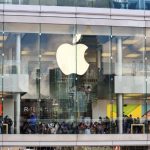
At the end of last month, Apple released a letter to its customers protesting about a US court order that could force the company to give the FBI a back door entry to individual iPhones. The case has brought the debate about government access to personal data and the protection of civil liberties to the fore once again. It has also made society and industry look more closely at the mechanics of data encryption and ask what makes the technology effective.
At its most basic, encryption provides a layer of protection for data at every stage of its journey from sender to recipient. If anyone tries to intercept or access the data without permission, they find themselves with a screen full of unintelligible gobbledygook. But encryption is only strong if there are no weak links in the chain. Apple argues that the FBI’s court order requesting a back door into its OS (Operating System) would force the company to create such a weak link in its encryption. This would undoubtedly speed up investigations of high profile crimes, but would come at high cost to the millions of law abiding iPhone users.
Yahoo joins the club, throws its support behind Apple against the FBI

For the past couple of weeks the tech news has circled around Apple versus the FBI, after the iPhone maker refused to comply with a court order to unlock a phone used by one of the terrorists in the San Bernardino shootings. That handset may or may not hold data relevant to the case or perhaps reveal plans for future attacks.
We'll possibly never know, given the agency changed the Apple ID and there are claims that even the iPhone maker cannot now get into it. The FBI, for its part, has acknowledged that it made a mistake in changing that ID.
In Apple vs FBI, it's our freedom at stake

Ever since it was announced that all iPhones would be encrypted by default with no reasonable way for Apple to unlock them, the FBI has been locked in an ever more acrimonious deadlock with the company. In the latest and most explosive development, the FBI has chosen its battle well: could there be a more emotive subject, or seemingly good reason for Apple to comply, than a demand to decrypt a single phone that belonged to a known terrorist?
By drawing its battle-lines in this way, the FBI achieves two things. On a basic level, it makes Apple look unreasonable for refusing, and therefore makes it easy to paint Apple as the "bad guy" who is preventing the "good guys" from protecting the American people against terrorists. This is a powerful argument, and certainly seems to have persuaded all front-running politicians.
Apple takes its FBI fight to Congress -- read the company's powerful opening statement
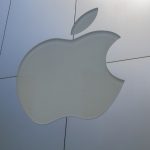
As you know, the FBI wants Apple to help unlock an iPhone linked to one of the San Bernardino shooters. Apple is resisting the request, and tomorrow will testify at a Congressional encryption hearing.
Apple’s General Counsel, Bruce Sewell, will make the company’s case before the house Judiciary Committee and his opening statement was sent to Apple employees earlier today. It’s an interesting read:
Mozilla sides with Apple against FBI -- proposes basic principles for government surveillance
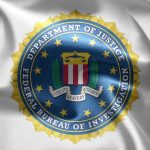
The ongoing dispute between the FBI and Apple is absolutely chilling. It shakes me to my core to think our government wants to force a company to write code under the guise of anti-terrorism. Quite frankly, the oft-argued opinion that supporting Apple in this regard is anti-American is not only wrong, but insulting. My soul still aches from 9/11, and I love America, but I also support Tim Cook and the company's fight to protect our civil liberties.
But forget my opinion -- major tech companies, such as Google and Microsoft, are standing up and pledging support for their competitor, Apple. Now, open source darling, Mozilla, is voicing its support too. Taking it a step further, however, the Firefox-maker is also proposing basic principles for government surveillance -- sort of like a bill of rights for encryption and surveillance.
Apple, encryption, iPhones, and the FBI plainly explained
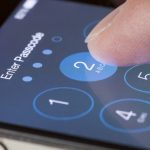
Most Americans, and many of the world’s iPhone users, are now aware that a court order was filed on February 16 to compel Apple to assist the FBI in retrieving information from an iPhone. This was the phone uncovered in the aftermath of the mass shooting in San Bernardino in December last year. Apple objected to the FBI’s demands and very public legal maneuvering ensued.
In this article I endeavor to explain some of the key issues that this situation raises, for both privacy and security, as they impact companies, consumers, and governments.
Microsoft's Bill Gates sides with FBI in Apple iPhone unlocking row, likens it to 'cutting a ribbon around a hard disk'

The debate about whether Apple should help the FBI to access content stored on an iPhone used by one of the San Bernardino shooters rumbles on. Based on our poll, the majority of BetaNews readers are against Apple cracking the phone (67 percent say no, 30 percent say yes, and 3 percent are currently undecided), and most tech firms have expressed similar sentiment.
But in an interview today with the Financial Times (story behind a paywall) Microsoft co-founder Bill Gates has come out firmly on the side of the FBI.
Why Apple's shameless fight with the FBI is all about ego, not just cause

After spending the last few days soaking up as much as possible on the Apple-FBI San Bernardino iPhone spat, the evidence -- in my eyes -- has become crystal clear. Apple's planted itself on the wrong side of history here for numerous reasons, and is using nothing less than a finely scripted legalese tango in defending its ulterior motives.
As a part time, somewhat auxiliary member of the tech media at large, I'm a bit embarrassed at how poorly this story has been covered by my very own colleagues. Many of those who should undeniably have a more nuanced, intricate understanding of the technical tenets being argued here have spent the last week pollinating the internet with talking point, knee-jerk reaction.
Apple vs. the FBI isn't at all the way you think it is

The FBI holds an iPhone that was owned by one of the San Bernardino terrorists, Syed Rizwan Farook, and wants Apple to crack it. Apple CEO Tim Cook is defying the FBI request and the court order that accompanied it, saying that cracking the phone would require developing a special version of iOS that could bypass passcode encryption. If such a genetically modified mobile OS escaped into the wild it could be used by anyone to crack any current iPhone, which would be bad for Apple’s users and bad for Amurica, Cook says. So he won’t do it, dag nabbit.
That’s the big picture story dominating the tech news this week. However compelling, I’m pretty sure it’s wrong. Apple isn’t defying the FBI. Or at least Apple isn’t defying the Department of Justice, of which the FBI is supposed to be a part. I believe Apple is actually working with the DoJ, which doesn’t really want to compel Apple to do anything except play a dramatic and very political role.
Poll: Should Apple help the FBI unlock the San Bernardino iPhone?

The US courts say Apple should help the FBI access the contents of an iPhone belonging to one of the San Bernardino shooters, but Apple is refusing, on the grounds that it doesn’t want to erode the security of Apple customers.
I’m personally on Apple’s side, as is my colleague Joe Wilcox, but Donald Trump wants Apple to use "common sense" and open its phone up, while John McAfee is claiming he can help the FBI unlock Apple’s device within "three weeks", primarily through the use of social engineering. The FBI for its part says it doesn’t want Apple to create a backdoor in all iPhones, just unlock the one belonging to the killer.
Hackers leak contact information of 20,000 FBI employees
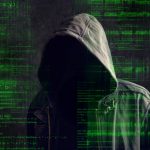
Hackers have leaked the contact information of 20,000 FBI employees, which follows the previous day's release of 10,000 Homeland Security employees' data.
The hackers communicating through Twitter, claimed "Well folks, it looks like @TheJusticeDept has finally realized their computer has been breached after one week".
The FBI peddles child porn to catch predators at the cost of the kids

As a parent you worry excessively about your children. Are you raising them right? Do they understand the concepts of what is good and bad? And of course you want nothing evil to befall them. Criminals and predators are a constant worry, the latter being particularly scary. If something bad happens you wish to fix it as quickly as possible, though the trauma to the child may linger.
But what if the government ran a child porn site? There's the problem and it's one with multiple answers. There's the obvious knee-jerk reaction of entrapment, though those being captured deserve little sympathy. It's akin to the TV show To Catch a Predator which did little real good, but garnered ratings because it sensationalized the people involved.
Life imprisonment for Silk Road creator Ross Ulbricht
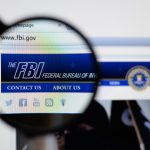
There are lots of online services and sites that quickly become notorious; the Pirate Bay and Napster to name but two. But Silk Road was something in a completely differently league. Found on the dark web, the site acted as a portal to drugs and other illegal goods. It started life back in 2011 and today its founder, Ross Ulbricht is sentenced to life in prison, a year and a half after his arrest.
Ulbricht was found guilty at a jury trial three months ago and today Judge Katherine Forrest said that Silk Road demonstrated he believed he "was better than the laws of this country". She said "this is deeply troubling, terribly misguided, and very dangerous" before handing down the harshest sentence available.
Recent Headlines
Most Commented Stories
BetaNews, your source for breaking tech news, reviews, and in-depth reporting since 1998.
Regional iGaming Content
© 1998-2025 BetaNews, Inc. All Rights Reserved. About Us - Privacy Policy - Cookie Policy - Sitemap.